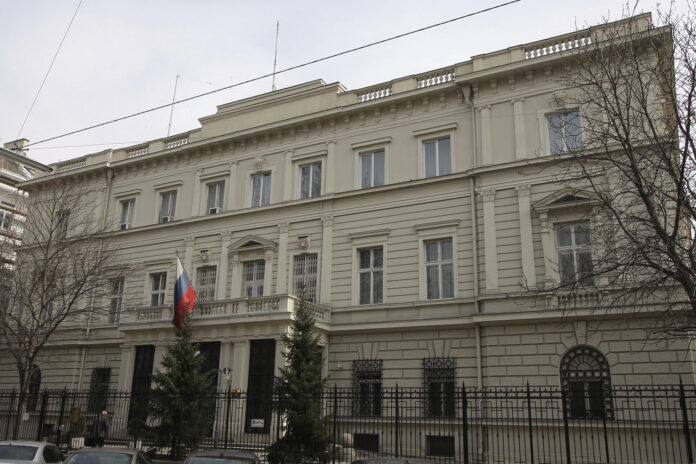Austria’s government said Thursday that it has ordered four Russian diplomats based in Vienna, including two at Moscow’s mission to U.N. agencies in the city, to leave the country.
The Foreign Ministry said in a brief statement that two diplomats at the Russian Embassy had “engaged in acts incompatible with their diplomatic status” and two at the permanent mission to the United Nations in Vienna “committed acts incompatible with the Headquarters Agreement.” It didn’t elaborate.
The diplomats were given a week to leave Austria.
Western European nations and Russia have expelled each others’ diplomats on several occasions since Moscow’s full-scale invasion of Ukraine started nearly a year ago.
Austria, a European Union member that has a policy of military neutrality, was initially hesitant to take such action but expelled four Russian diplomats in April after pressure from the public and EU partners.
An Austrian official with knowledge of the matter said that the diplomats currently being expelled are “higher ranking” than the ones who were sent back in April and had been involved in “technical intelligence gathering to the detriment of Austrian national security.”
“Enough is enough,” the official said, speaking on condition of anonymity because of the sensitivity of the matter.
Austria has given aid to Ukraine but not military equipment. President Alexander Van der Bellen was in Kyiv on Wednesday on a trip meant to underline Austria’s solidarity.
Vienna is home to U.N. agencies including the International Atomic Energy Agency and the U.N. Office on Drugs and Crime.
The Russian Foreign Ministry said it would respond in kind to the diplomats’ expulsion, according to state news agency Tass.
Russia’s ambassador to Austria, Dmitry Lyubinsky, said in televised remarks that he and Mikhail Ulyanov, the ambassador to international organizations in Vienna, separately visited the Austrian Foreign Ministry late Wednesday to hear about the decision.
“We voiced a resolute protest, rejected the unfounded allegations and warned about the inevitability of retaliatory measures,” he said.
Lyubinsky added that Austrian authorities failed to make specific accusations beyond “unfounded claims and vague references to the opinion of special services.” He said the decision would affect Austria’s position “as a neutral international platform for negotiations.”

